What to know
These virtual human simulations can answer your questions about cancer. They provide an interactive conversation guided by questions about cancer that you choose. Doctors can practice talking to patients about their mental health, neutropenia, and prostate cancer.
For cancer patients and survivors
Alcohol
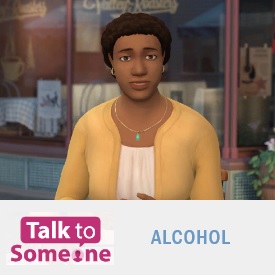
An interactive conversation about how alcohol can affect your health as a cancer survivor.
Tobacco
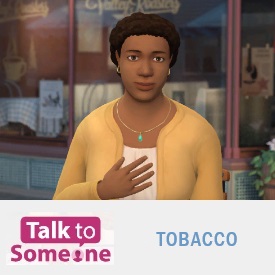
Explains how smoking affects the body, especially as a cancer survivor, and gives advice about quitting.
Anxiety and distress
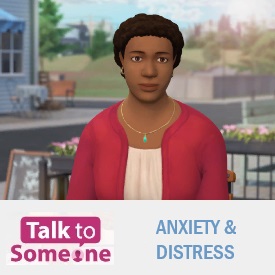
This simulation talks about common stresses and concerns for cancer survivors, and how to find support.
Physical activity and nutrition
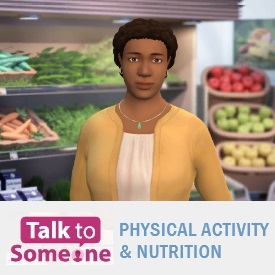
This simulation gives tips for cancer survivors to improve physical activity and healthy eating.
TINA (neutropenia awareness)
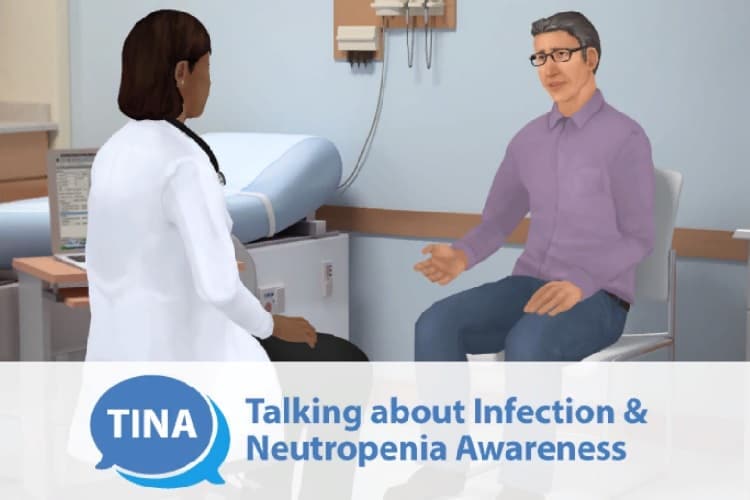
This simulation helps educate patients and providers about preventing infections during chemotherapy. Neutropenia is a decrease in the number of white blood cells. Neutropenia is common after receiving chemotherapy.
For people with known cancer risk
Let's Talk: Sharing Info About Your Family Cancer Risk
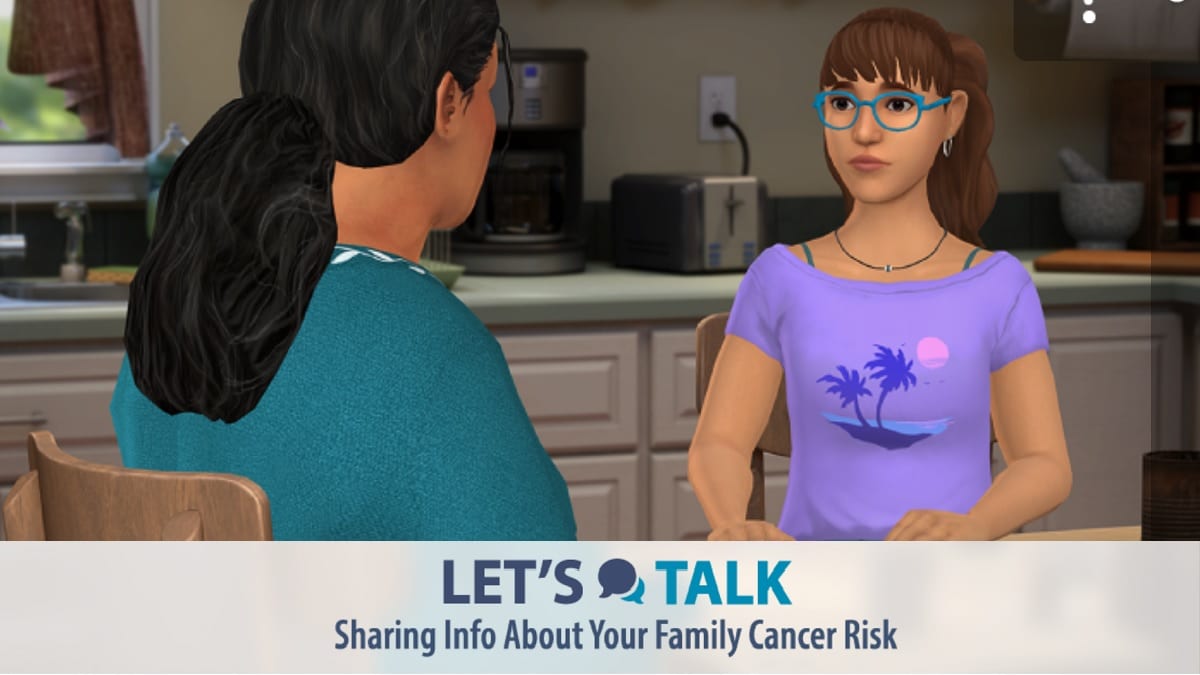
Learn how to talk about cancer risk that may run in your family. Practice bringing it up with family members and helping them make good decisions about their health.
Breast cancer
Triple-negative breast cancer
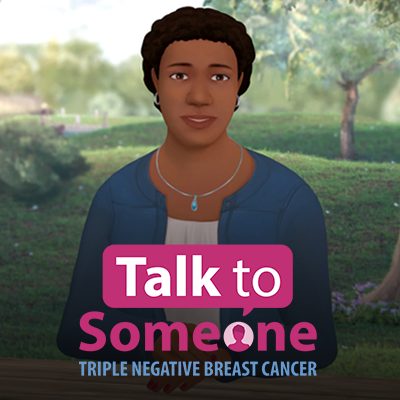
This simulation allows people to have a conversation with Linda, a virtual coach, and ask questions in a safe environment.
Prostate cancer
Screening
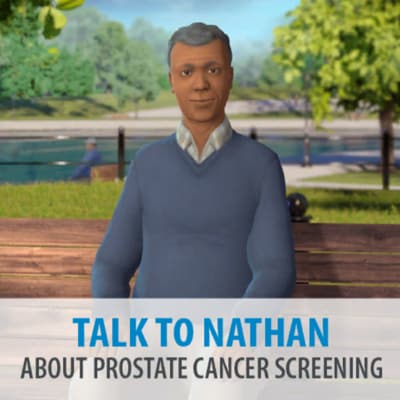
An interactive conversation with Nathan that can help you decide whether to get screened.
Treatment
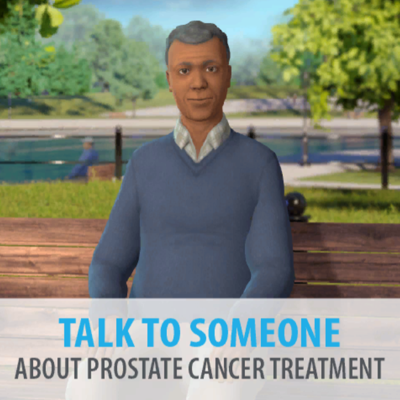
In this virtual conversation, Nathan helps you get ready to talk to your doctor about treatment options.
For health care providers
Let's Talk: Nutrition, Physical Activity and Cancer Survivors
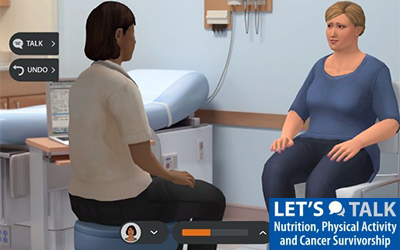
This simulation provides a safe and responsive learning environment for providers to practice effective communication techniques. These discussions focus on nutrition, physical activity, and obesity risk with cancer survivors.
Prostate cancer

In this interactive experience, you can practice helping patients make decisions about prostate cancer screening and treatment. You'll learn a streamlined shared decision-making framework and get feedback on your approach.
Talk to Someone: Health Care Providers

Dr. Wei explains how Linda provides information approved by CDC's medical experts to encourage healthy behaviors in an empathetic way. Linda builds a foundation of knowledge and motivation so your conversations with survivors are more targeted and efficient.
TINA (neutropenia awareness)

This simulation helps educate patients and providers about preventing infections during chemotherapy.
Mental Health Care of Cancer Survivors
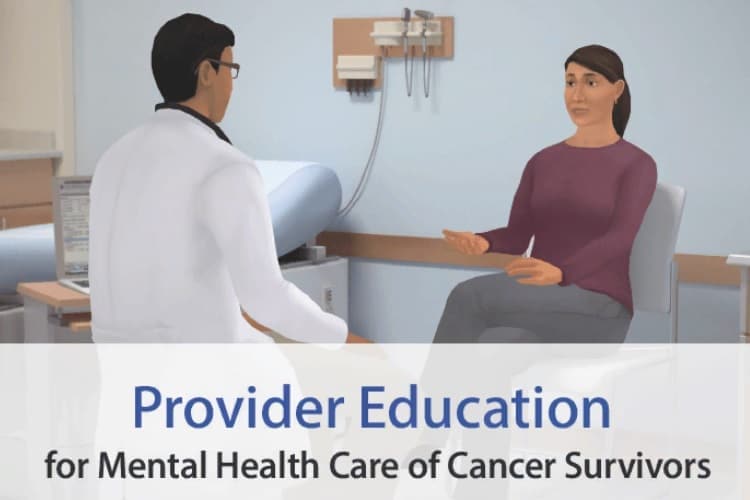
This simulation for providers helps improve knowledge about mental health care for cancer survivors and promotes recommended distress screening.
